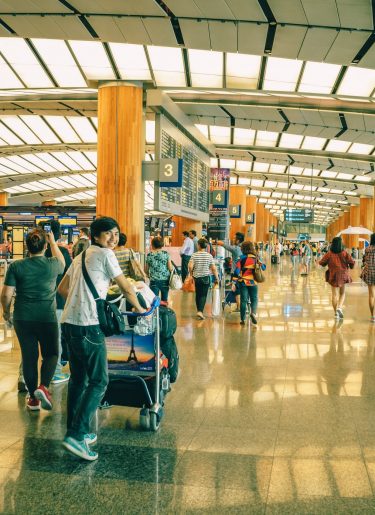
1. GUIDANCE
1.1 Has any guidance been issued on how UK nationals can obtain settled residence status and permission to work from 1 January 2021 and what proof of residence is needed for current residents to maintain their status?
Yes.
Croatia has recently adopted new rules in relation to UK nationals currently residing in Croatia in the latest amendment to the Act on EEA nationals and their family members (the ‘Amendment’). The Amendment became effective on 1 January 2021.
According to the Amendment rules, UK nationals and their family members who had a valid temporary or permanent residence in Croatia on 31 December 2020 will maintain their entitlement to residence in Croatia. They will have to apply for a new temporary or permanent residence permit, which will be issued under the same conditions applied to EEA nationals. The applications must be submitted between 1 January and 30 June 2021. The same rules apply to UK nationals who did not yet have a valid temporary or permanent residence permit on 31 December 2020, but who were lawfully residing in Croatia on that date and continue to do so.
UK nationals who were not physically present in Croatia on 31 December 2020, provided that they meet the criteria for continuity of residence under Article 11 of the Withdrawal Agreement (WA), can submit their application within six months from the date of next entry into Croatia.
Details on ways to prove residence should be determined in the Ordinance issued by the Minister of Internal Affairs, which is still pending.
On the other hand, UK nationals arriving in Croatia after Brexit date will be in the position of third-country nationals and the same rules as for any other third-country nationals will apply. This basically means they will need to regularise their status in Croatia based on a residence and work permit, unless they can rely on one of the exemptions expressly prescribed by the law (please see 3.1 below).
The Amendment also establishes rules applicable to UK nationals who are frontline workers. For more detail, see 4.1 below.
2. BUSINESS TRAVEL
2.1 Do UK employees need a business visa from 1 January 2021?
No, provided that they meet the criteria from the Trade & Cooperation Agreement entered into by the EU and the UK (the ‘T&C Agreement’). Under the T&C agreement, UK citizens shall be able to enter and stay in Croatia as Short-term business visitors for a maximum of 90 days in any rolling 180-day period, provided that they:
The T&C Agreement provides an exhaustive list of activities in which short-term business visitors are permitted to engage. These include:
For any other work-related activity or stay longer than as described above, UK citizens will need a residence and work permit.
2.2 What documents are needed on arrival for business travel from 1 January 2021?
For a stay of no longer than 90 days in any 180-day period UK nationals need to have a valid passport with an expiration date no less than three months after the planned departure date from Croatia, and which has been issued no more than ten year prior to arrival.
Since UK citizens are now considered third-country nationals, additional documentation may be required to demonstrate they meet the following conditions:
Unless s/he stays in a hotel or a guest house, a UK business traveller will need to notify the competent Croatian Ministry of Interior office of their presence within two days of entry into Croatia and arrival at the relevant address of stay or residence in Croatia.
2.3 Do UK nationals need additional permission to work for business travel from 1 January 2021?
No, UK nationals can travel to Croatia for up to 90 days in any 180-day period without a visa as explained under 2.1.
3. EMPLOYMENT AND RESIDENCE
3.1 Will UK nationals need permission to work and stay in Croatia from 1 January 2021?
Yes, unless they can rely on an exemption such as:
– a Croatian national;
– a person who has been granted asylum and/or international protection in Croatia (subject to conditions),
– a third-country national holding a permanent residence permit in Croatia;
– a third-country national holding a permanent residence permit in another EEA country;
– a third-country national holding the EU Blue Card;
– a third-country national holding a temporary residence permit for scientific research in Croatia (subject to conditions); or
– a third-country national holding a residence and work permit as intra-corporate transferee;
3.2 If permission to work is needed after 1 January 2021, do any quotas apply to the employment of third-country nationals?
No.
In Croatia, this permission is called a Residence and Work Permit, and is issued for a maximum period of one year, with a possibility of extension. Under the Croatian Foreigners Act (Official Gazette, No. 133/20), the permits are issued on the basis of the Economic Needs Test (the ‘ENT’). Residence and Work Permits can also be issued without the need to conduct an ENT for deficit professions, as such are determined by the Croatian Employment Services. Equally, Residence and Work Permits valid up to 90 days can be issued for seasonal workers in agriculture, forestry, hospitality, and tourism sectors without an ENT.
3.3 If permission to work is needed from 1 January 2021, what categories of permission are commonly granted?
The current law in Croatia does not define specific categories of Residence and Work Permit. However, depending on applicable criteria for issuing such permits we can broadly differentiate the following categories:
3.4 If permission to work or stay is needed from 1 January 2021, how long does the procedure take?
The employee can apply at the Croatian diplomatic or consular office in his or her state of origin abroad, or at the competent Croatian Ministry of Interior office (a police station) in the place of work in Croatia if they do not require a visa. A Croatian employer can also apply for a residence and work permit on behalf of an employee.
The competent Croatian Ministry of Interior office is required to issue the permit within a period of 15 days following submission of a complete application.
3.5 If permission to work and stay is needed from 1 January 2021, what Government fees are payable?
Currently, total Government fees are around HRK 900 (approximately EUR 121).
4. FRONTIER WORKERS
4.1 What formalities apply to UK frontier workers working in Croatia but living in another country from 1 January 2021?
According to the Amendment rules, the UK nationals who are considered frontline workers on 30 December 2020, must apply for a so-called Frontline Pass which confirms their status as a frontline worker. The applications shall be submitted from 1 January 2021 to the competent Police station according to the place of work. The application must consist of:
Technical details for issuing the Frontline Pass shall be provided in the Ordinance issued by the Minister of Interior Affairs, which is still pending.
5. PERMANENT RESIDENCE
5.1 From what date are third-country nationals entitled to apply for permanent residence?
After five uninterrupted years of legal stay in Croatia (subject to conditions).
6. SECURING RESIDENCE AND WORK STATUS
6.1 What steps could UK nationals take currently to secure their residence and work status?


